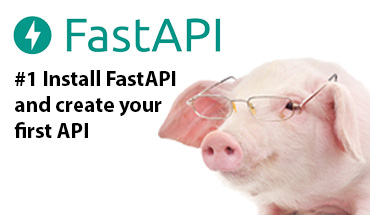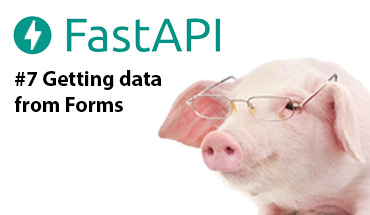Automatic Documentation in FastAPI

The API documentation is automatically generated, to access it, from the browser enter ’localhost:port/docs’ or alternative documentation in ’localhost:port/redoc’.
Project metadata
from fastapi import FastAPI
description =
"""
ChimichangApp API helps you do awesome stuff. ????
## Items
You can **read items**.
## Users
You will be able to:
* **Create users** (_not implemented_).
* **Read users** (_not implemented_).
"""
app = FastAPI(
title="ChimichangApp",
description=description,
version="0.0.1",
terms_of_service="http://example.com/terms/",
contact={
"name": "Deadpoolio the Amazing",
"url": "http://x-force.example.com/contact/",
"email": "dp@x-force.example.com",
},
license_info={
"name": "Apache 2.0",
"url": "https://www.apache.org/licenses/LICENSE-2.0.html",
},
)
@app.get("/items/")
async def read_items():
return [{"name": "Katana"}]
Organize end-points by tags
By adding the 'tag' parameter in the function decorator, we achieve that the end-points are grouped in the documentation according to these labels, maintaining a better order in the presentation of the documentation:
from fastapi import FastAPI
from pydantic import BaseModel
app = FastAPI()
class Item(BaseModel):
name: str
description: str | None = None
price: float
tax: float | None = None
tags: set[str] = set()
@app.post("/items/", response_model=Item, tags=["items"])
async def create_item(item: Item):
return item
@app.get("/items/", tags=["items"])
async def read_items():
return [{"name": "Foo", "price": 42}]
@app.get("/users/", tags=["users"])
async def read_users():
return [{"username": "johndoe"}]
Metada para tags
from fastapi import FastAPI
tags_metadata = [
{
"name": "users",
"description": "Operations with users. The **login** logic is also here.",
},
{
"name": "items",
"description": "Manage items. So _fancy_ they have their own docs.",
"externalDocs": {
"description": "Items external docs",
"url": "https://fastapi.tiangolo.com/",
},
},
]
app = FastAPI(openapi_tags=tags_metadata)
@app.get("/users/", tags=["users"])
async def get_users():
return [{"name": "Harry"}, {"name": "Ron"}]
@app.get("/items/", tags=["items"])
async def get_items():
return [{"name": "wand"}, {"name": "flying broom"}]
Complete metadata for the end-point
from fastapi import FastAPI
from pydantic import BaseModel
app = FastAPI()
class Item(BaseModel):
name: str
description: str | None = None
price: float
tax: float | None = None
tags: set[str] = set()
@app.post(
"/items/",
response_model=Item, # Class to define the output
summary="Create an item", # General and short description for the end-point
response_description="The created item", # Description specifically about the response
tags=["items"], # Tag for grouping the end-points
deprecated=True # If the end-point is deprecated but it is not removed yet
)
# The extended description for the end-point is presented in the docstring
async def create_item(item: Item):
"""
Create an item with all the information:
- **name**: each item must have a name
- **description**: a long description
- **price**: required
- **tax**: if the item doesn't have tax, you can omit this
- **tags**: a set of unique tag strings for this item
"""
return item
JSON as example in documentation
from fastapi import FastAPI
from pydantic import BaseModel
app = FastAPI()
class Item(BaseModel):
name: str
description: str | None = None
price: float
tax: float | None = None
class Config:
schema_extra = {
"example": {
"name": "Foo",
"description": "A very nice Item",
"price": 35.4,
"tax": 3.2,
}
}
@app.put("/items/{item_id}")
async def update_item(item_id: int, item: Item):
results = {"item_id": item_id, "item": item}
return results
Another way of putting the example JSON:
from fastapi import Body, FastAPI
from pydantic import BaseModel
app = FastAPI()
class Item(BaseModel):
name: str
description: str | None = None
price: float
tax: float | None = None
@app.put("/items/{item_id}")
async def update_item(
item_id: int,
item: Item = Body(
example={
"name": "Foo",
"description": "A very nice Item",
"price": 35.4,
"tax": 3.2,
},
),
):
results = {"item_id": item_id, "item": item}
return results
Even for a more enriched development of examples, the different scenarios are described:
from fastapi import Body, FastAPI
from pydantic import BaseModel
app = FastAPI()
class Item(BaseModel):
name: str
description: str | None = None
price: float
tax: float | None = None
@app.put("/items/{item_id}")
async def update_item(
*,
item_id: int,
item: Item = Body(
examples={
"normal": {
"summary": "A normal example",
"description": "A **normal** item works correctly.",
"value": {
"name": "Foo",
"description": "A very nice Item",
"price": 35.4,
"tax": 3.2,
},
},
"converted": {
"summary": "An example with converted data",
"description": "FastAPI can convert price `strings` to actual `numbers` automatically",
"value": {
"name": "Bar",
"price": "35.4",
},
},
"invalid": {
"summary": "Invalid data is rejected with an error",
"value": {
"name": "Baz",
"price": "thirty five point four",
},
},
},
),
):
results = {"item_id": item_id, "item": item}
return results
Disable documentation
We can edit the access url to each of the documentations (docs_url or redoc_url) and even disable it by adding 'None' as a value.
from fastapi import FastAPI
app = FastAPI(docs_url="/documentation", redoc_url=None)
@app.get("/items/")
async def read_items():
return [{"name": "Foo"}]
Thanks for reading :)
I invite you to continue reading other entries and visiting us again soon.









